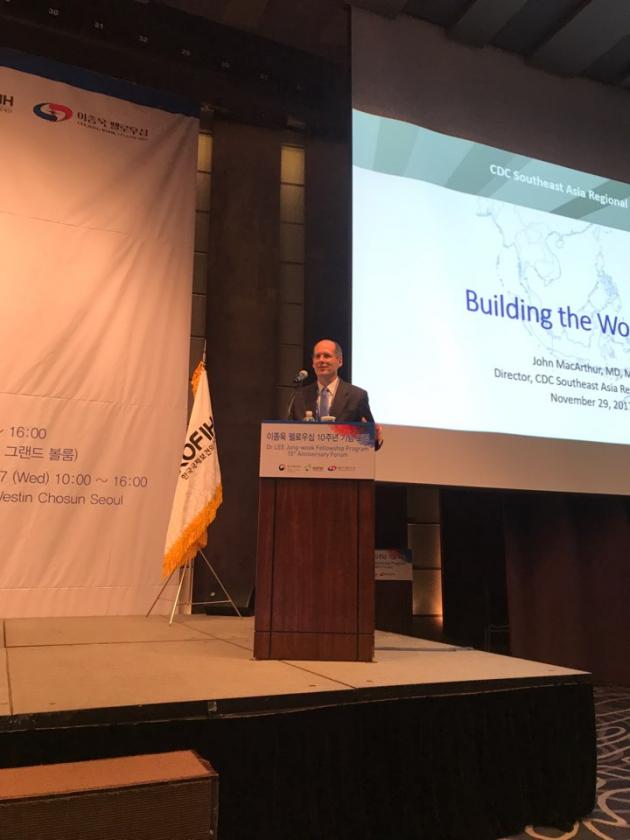John MacArthur, director of the U.S. Centers for Disease Control and Prevention (CDC) Southeast Asia Regional Office, highlighted the importance of building a healthcare workforce, at the Lee Jong-wook Fellowship Program 10th Anniversary Forum Wednesday.

In his keynote speech, MacArthur introduced the direction of the world's development plans, from Millennium Development Goals (MDGs) to Sustainable Development Goals (SDGs), and stressed the importance of healthcare workforce in achieving such goals.
MDGs are a set of eight goals signed by all 189 U.N. member states in a global effort to combat poverty, hunger, disease, illiteracy, environmental degradation and discrimination against women from 2000 to 2015. During the MDGs, many countries failed to achieve their goals after seeing a shortage and inequitable distribution of their health staffs.
"Health was associated with all eight goals of the MDGs and affected the realization of goals," MacArthur said. "That's why healthcare workers who are in charge of health emerged as an important source for achieving the MDGs.”
The importance of healthcare workforce was highlighted again after the U.N. adopted SDGs after the MDGs ended in 2015. The SDGs were adopted after the U.N. realized that although the MDGs made substantial progress, the achievements were uneven. The SDGs laid out a set of 17 goals built on the partial successes of the MDGs and aimed to ensure that all people enjoy a prosperous and healthy life by 2030.
MacArthur reiterated that health is the primary factor in achieving the goals outlined by the SDGs and that the current shortage of healthcare workers can hinder the global community’s efforts.
“The global community must address the crucial shortages in all types of health workers,” MacArthur said. “There needs to be a global and local commitment to establishing the policies to train, recruit, and retain health care workers for critical shortage areas.”
After all, no health workforce means no global health security, MacArthur added.
To resolve the problem, global health ministers approved a resolution on health workforce at the 69th World Health Assembly in 2016. The resolution acknowledged the importance of health workforce to achieving the SDGs and called upon member states to strengthen their health workforce.
The remainder of the forum discussed the CDC’s field epidemiology training program (FETP), a program to develop field epidemiologists at all level of a country’s health system, and other nation’s strategies on their health workforce capacity building.

